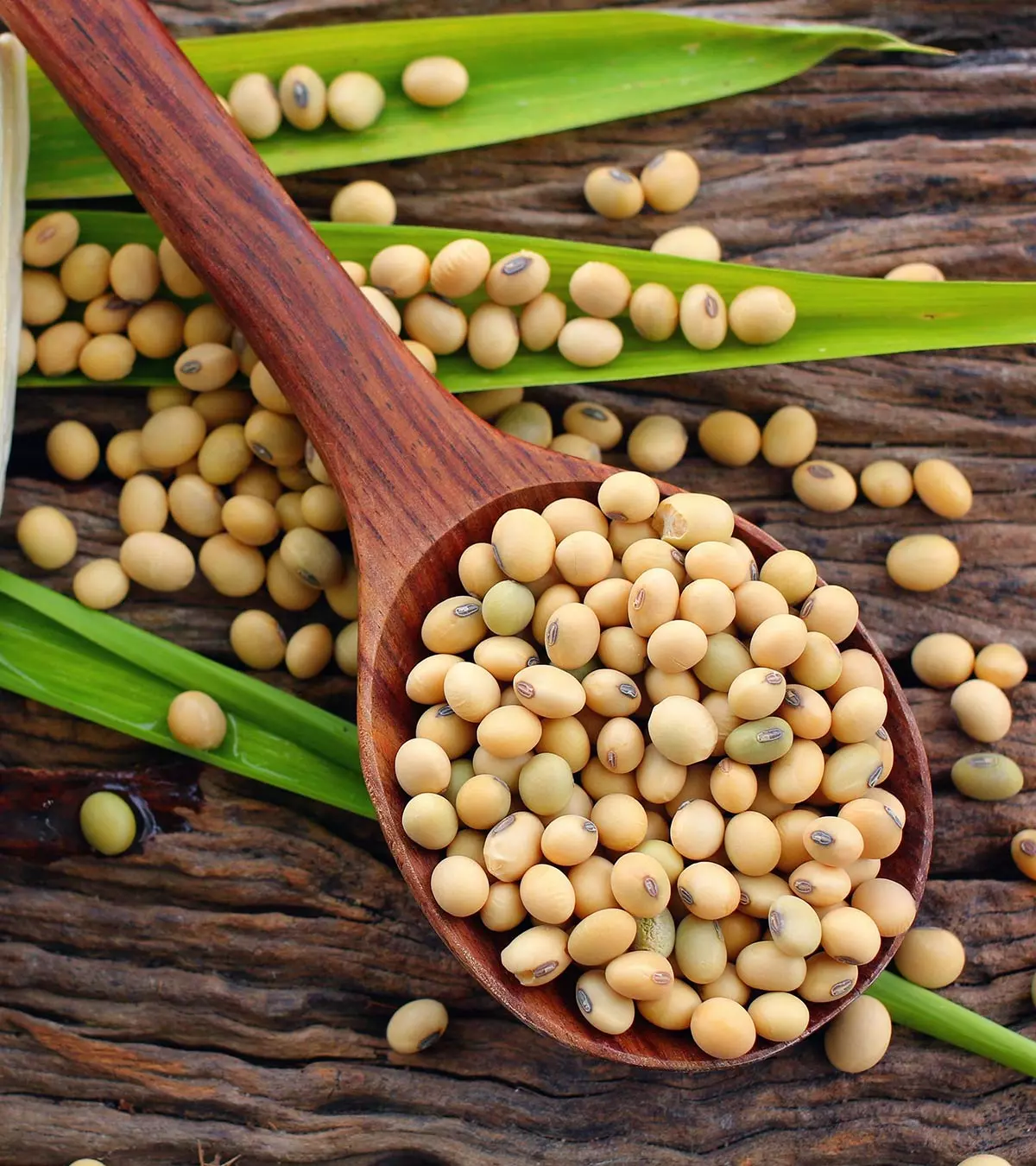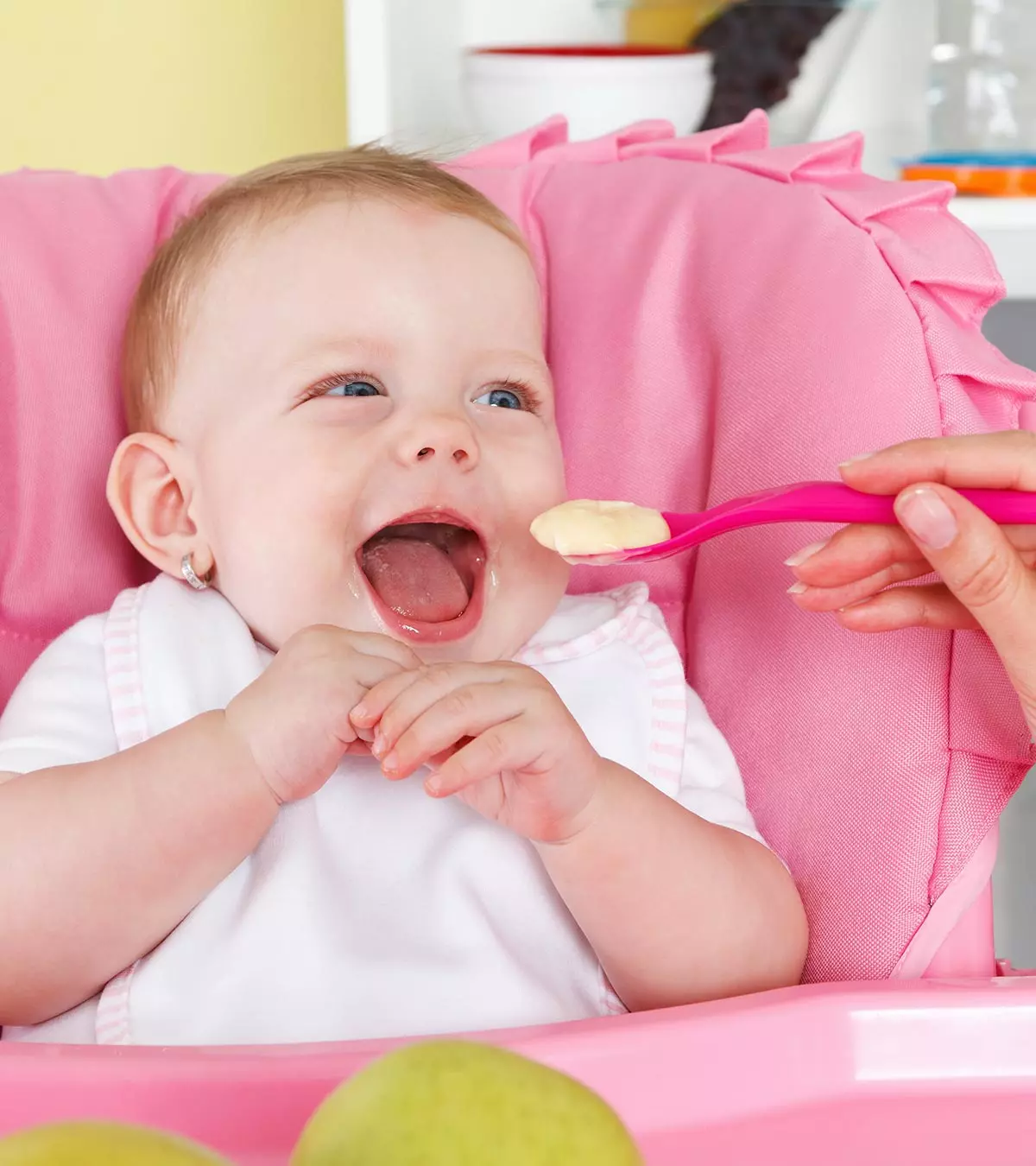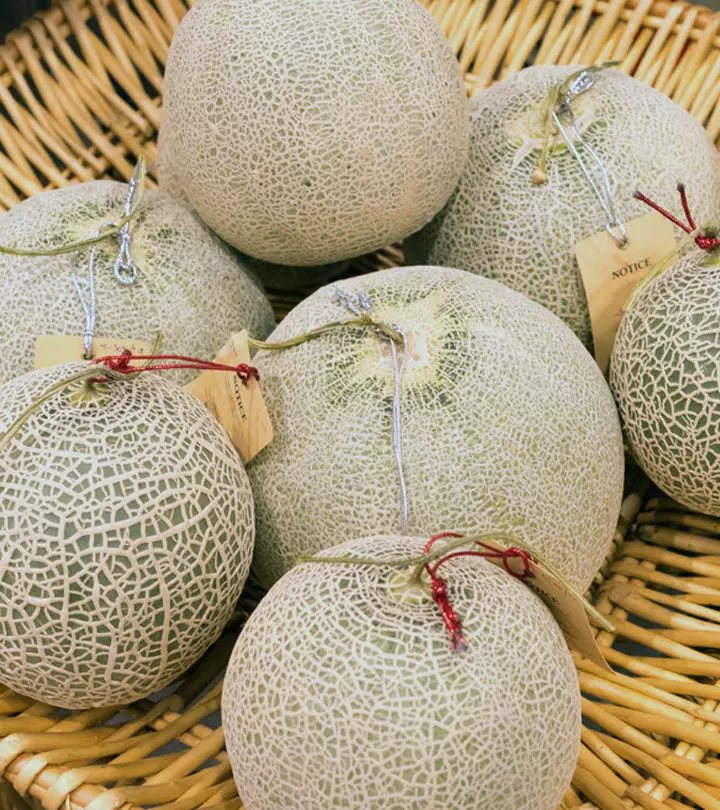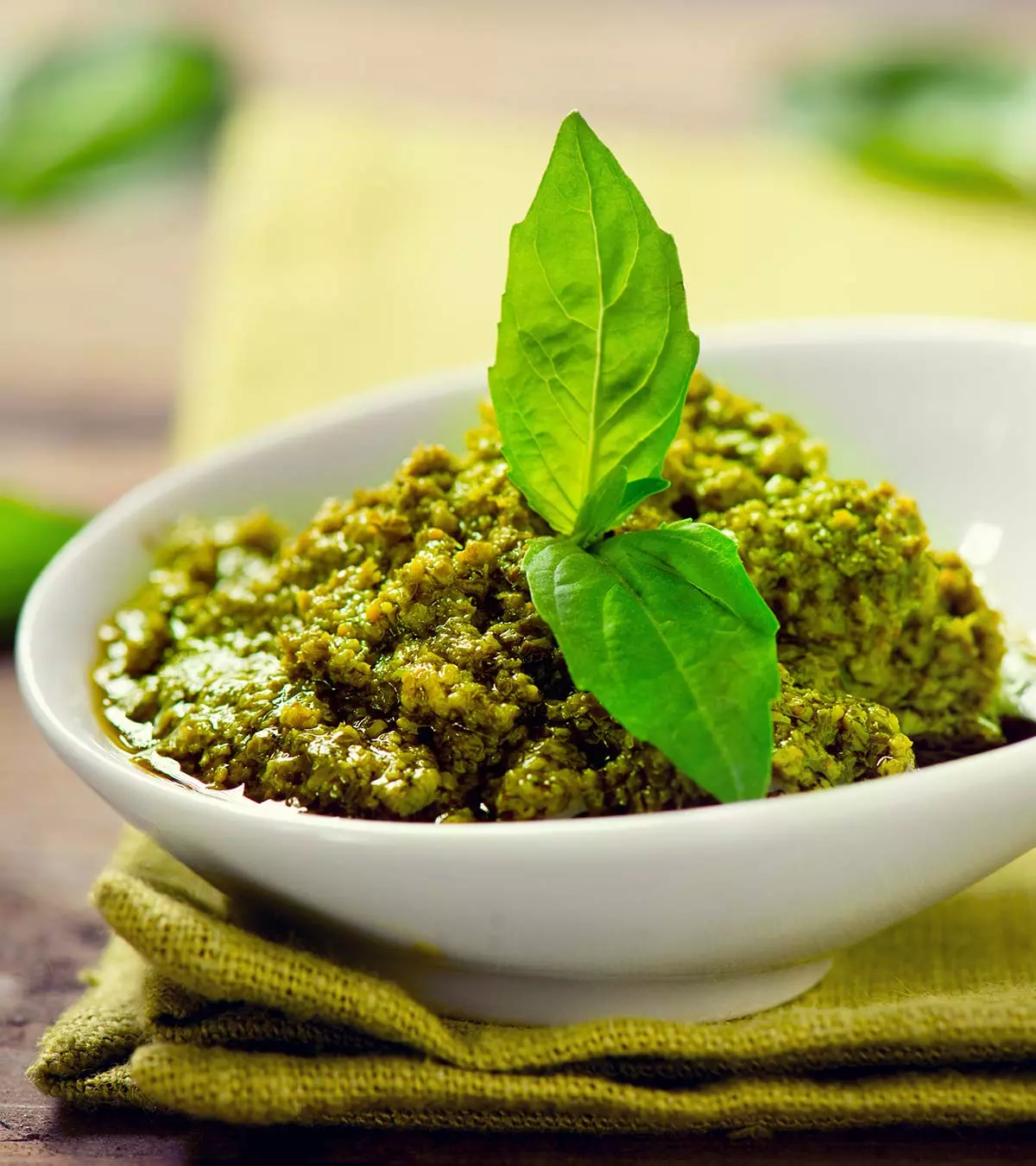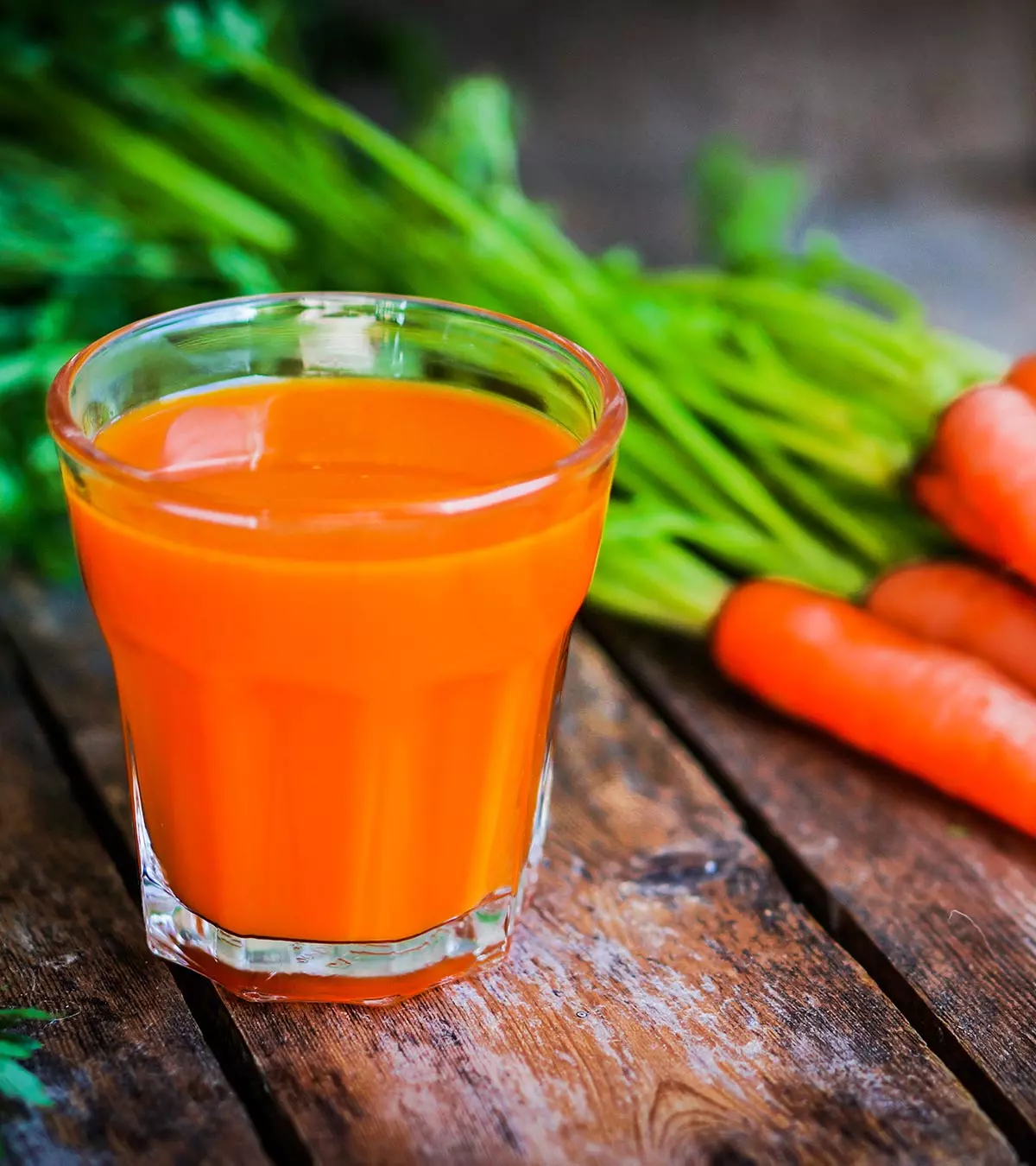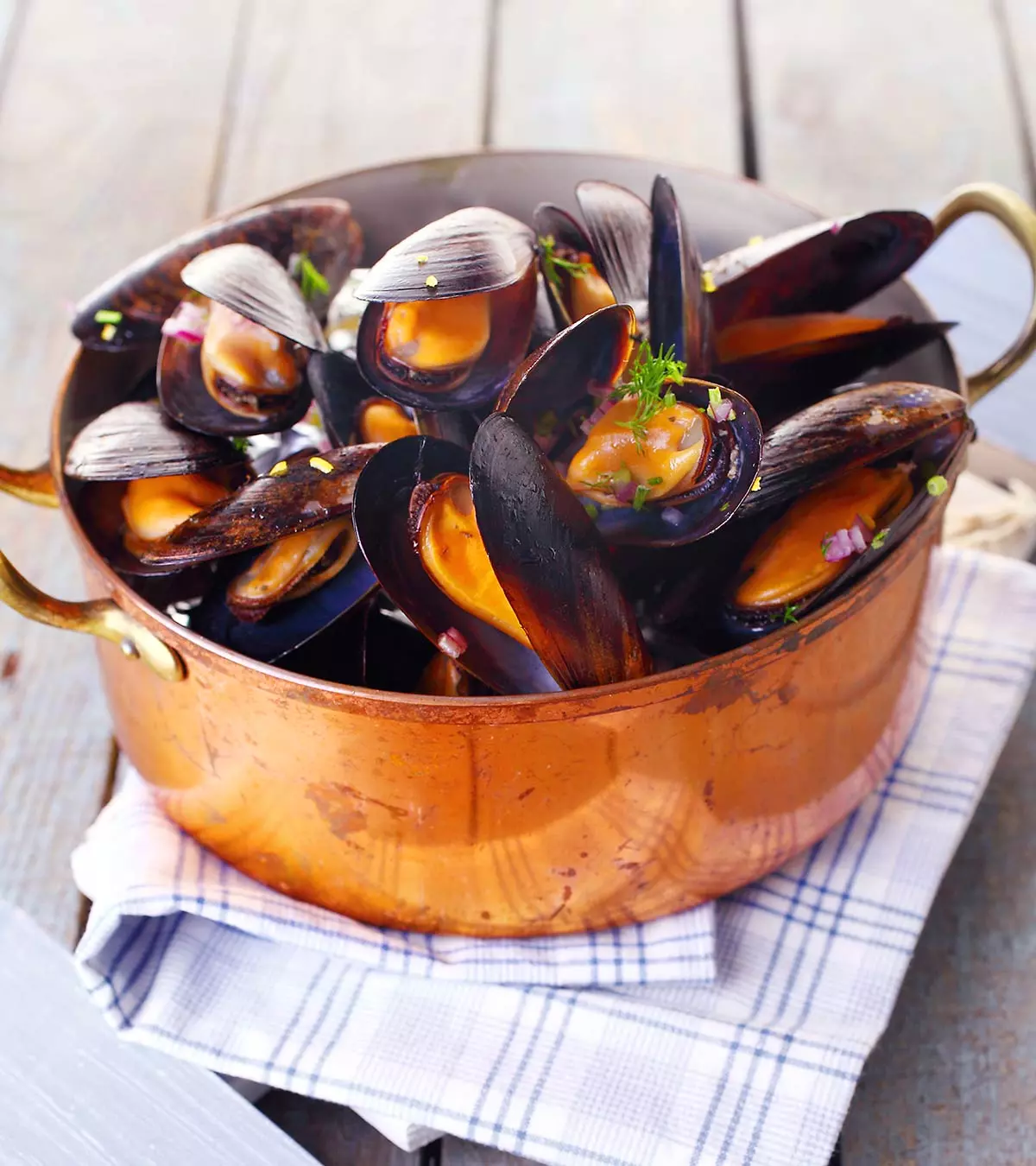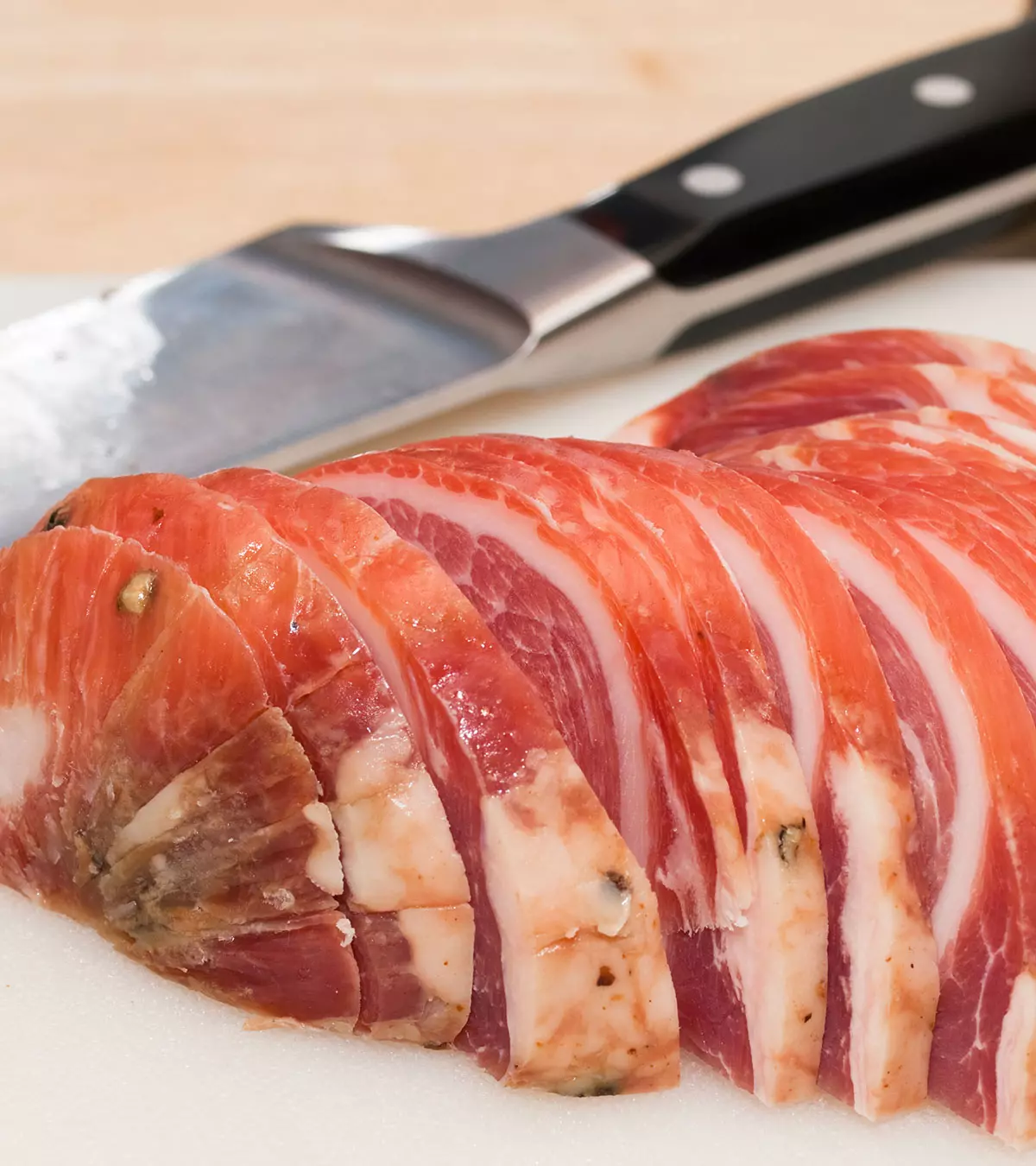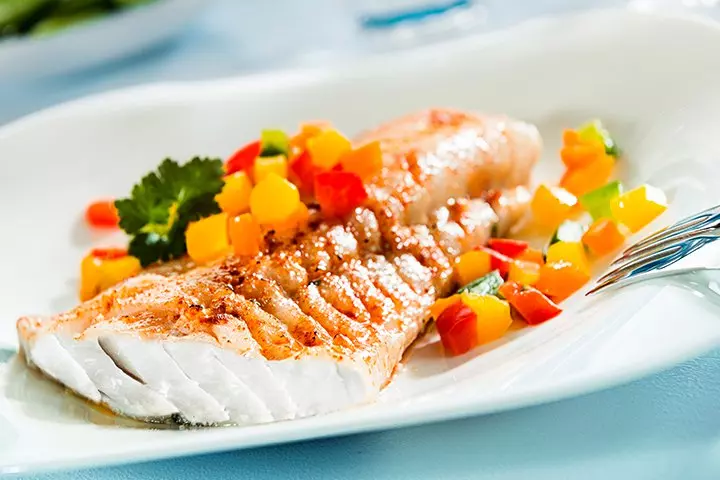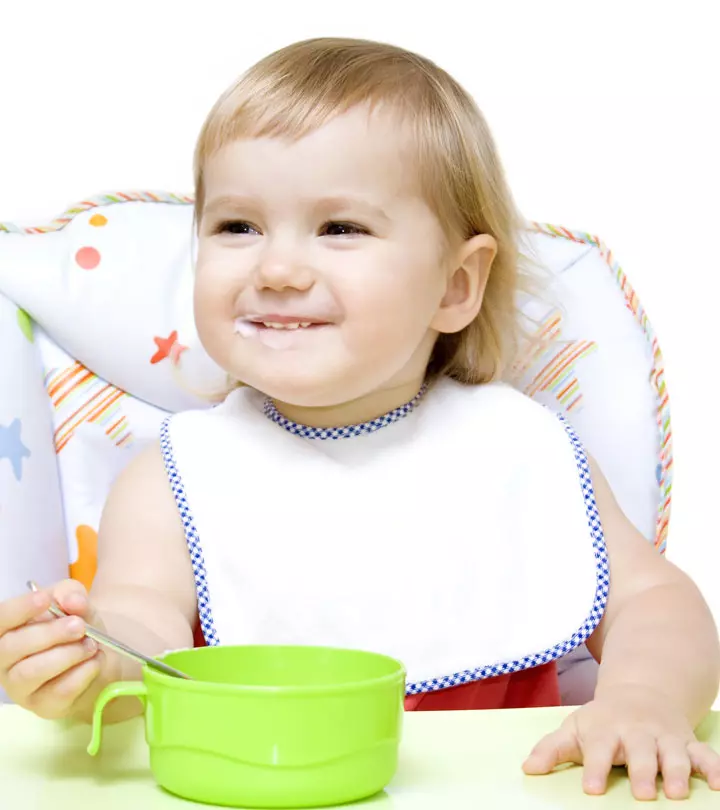
Image: ShutterStock
Most first-time moms are unsettled about their little one’s eating patterns. Having a 16-month-old baby fuss around with food frequently could leave you agitated. Thus, introducing new foods by experimenting with food ideas for 16-month-old babies could be a great way to feed them nutritious and delicious food. At 16 months, your baby is rapidly growing, and their energy levels are soaring. And with their intuitive minds driving them to explore their surroundings, it is not easy to have them sit calmly and finish their meals. Their nutritional needs also change, and it’s crucial you offer a balanced diet that supports their growth and development while considering their emerging independence and preferences. Read on as we share some nutritious and interesting ideas to help you feed your 16-month-old.
Key Pointers
- To support their high energy levels and growth, a 16-month-old baby requires a balanced diet.
- Your child’s daily diet should include 350-400 ml of milk.
- Fruits are not only nutritious but also add flavor and color to your child’s diet. Encourage your child to try a new fruit every day.
- Vegetables are rich in vitamins, minerals, and dietary fiber that help to build your child’s immunity.
- Eggs are an excellent source of iron and protein, which are crucial for boosting your child’s concentration and focus.
Top 10 Food Ideas For Your 16 Months Baby
1. Grains
From pasta to brown bread, there are a whole lot of grain choices to include in your baby’s meal plans. For this age group, a typical serving size is 1/4 to 1/2 slice of whole grain bread or four tablespoons of cooked cereal, rice, or pasta (1). Whole grain muffins will make a quick breakfast and snack option for your baby. You can also sneak in extra fruits while preparing muffins. Cut out sandwiches with a pastry or cookie cutter in interesting shapes to make it more appealing. Animals, stars, dinosaurs, and hearts are all fun options.
2. Milk
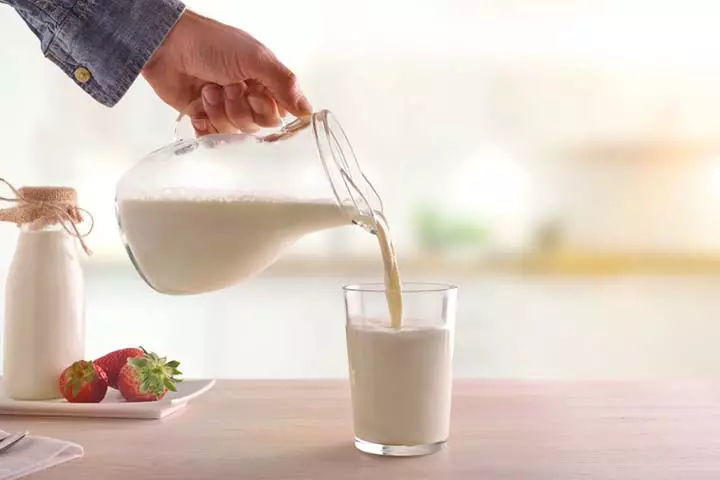
After your child’s first birthday, you can continue breastfeeding if you choose or introduce pasteurized whole cow’s milk as their main drink. It’s advisable to serve milk in a cup rather than a bottle to reduce tooth decay risk and help transition away from bottle-feeding (2). For children aged 12 to 24 months, providing 16 to 24 ounces (approximately 480 to 720 milliliters) of whole milk per day is recommended. Exceeding this amount may decrease their appetite for solid foods (3). It is better if the children obtain all the nutrients from a varied childhood diet. It’s essential that they get vitamin D and calcium in their daily diet. You may consult your pediatrician to learn about dairy milk alternatives.
3. Yogurt
If your baby doesn’t like milk, then you can offer them some yogurt. Three servings of yogurt a day are enough for the development of a 16-month-old baby (4). Mix yogurt with their favorite fruit puree to serve as a delicious snack.
 Quick fact
Quick fact4. Fruits
The different hues, aromas, textures, tastes, shapes, and sizes of fruits are sure to appeal to your toddler. So, serve them a new fruit every day to tantalize their taste buds in a healthy way. Seasonal fruit also makes a great addition to their diet. You can cut grapes and plums into quarters, slice firm fruits like apples and pears into thin pieces, and mash or puree softer fruits like bananas and ripe peaches. For children aged 1 to 4 years, an appropriate serving size is approximately 40 grams. You can offer 1 to 2 servings of fruits at each meal and also as snacks (4).
5. Poultry

Almost 6% of children aged one to three years are iron-deficient in the United States (6). Hence, it is important to include iron-rich foods in your baby’s diet. Poultry is an excellent source of iron and is a sure shot-hit among children. For a 16-month-old child, offering about 80 grams of cooked lean chicken or turkey is appropriate (7). This can be served in various ways, including finely chopped or shredded pieces, incorporated into casseroles, or blended into purees.
6. Vegetables
Veggies are an essential source of vitamins, minerals, and dietary fiber. Adding vegetables to your baby’s diet will work wonders for their immunity and protect them from various infections and illnesses. For a 16-month-old, it’s recommended to offer 2 to 3 servings of vegetables daily, with each serving equating to approximately 1 to 2 tablespoons (1). Incorporate vegetables into familiar dishes like sauces, breakfast items, and favorite meals by finely shredding, mixing, or blending them. They can also be included in snacks like muffins or hash browns. You can also prepare vegetable stock and add it to the different baby foods you prepare for your little one.
Sharmila, a mother, describes how her baby, Aashvi, finds joy in both eating and playing with her food during her morning snack. She says, “It’s time for her morning snack, so today I’m offering her some cottage cheese with some steamed carrot. Morning snack is something that she enjoys playing with, I would say. Rather than eating, she will just eat a few bites, and then she will start playing (i).”
7. Beans And Legumes
Beans and Legumes are a rich source of protein, iron, dietary fiber, and B vitamins (8). The recommended daily intake includes serving 1 cup of cooked chickpeas, lentils, or canned beans (7). You can serve your toddler baked beans for breakfast or lentil soup for dinner. You can also consider mashing cooked beans and spreading them on wholemeal toast, blending lentils into a smooth soup, or mixing pureed legumes into soft-cooked vegetables or grains.
8. Eggs
Eggs are a powerhouse of proteins and other essential nutrients. You can serve this versatile food in various forms like hard-boiled eggs or egg scramble. You can also consider making omelets with finely chopped vegetables or egg muffins. A daily intake of half an egg to a whole egg is recommended (9). Eggs are so healthy and yummy that you would want them to be a part of your toddler’s diet for years to come. The American Academy of Pediatrics (AAP) advises that children under the age of 5 should consume no more than two eggs per week (10).
 Quick fact
Quick fact9. Fish
Your baby’s brain needs essential fats like EPA and omega three fatty acids to develop well. These healthy fats come mainly from fish. So at this stage, you must make fish a significant part of an early childhood diet. For toddlers aged 1–3 years, the recommended serving size of fish is about 1 ounce. Suitable options include salmon, sardines, herring, and Atlantic mackerel, all of which are rich in omega-3s and have low mercury levels (12). Remember to remove all the tiny bones while feeding your baby.
10. Porridge
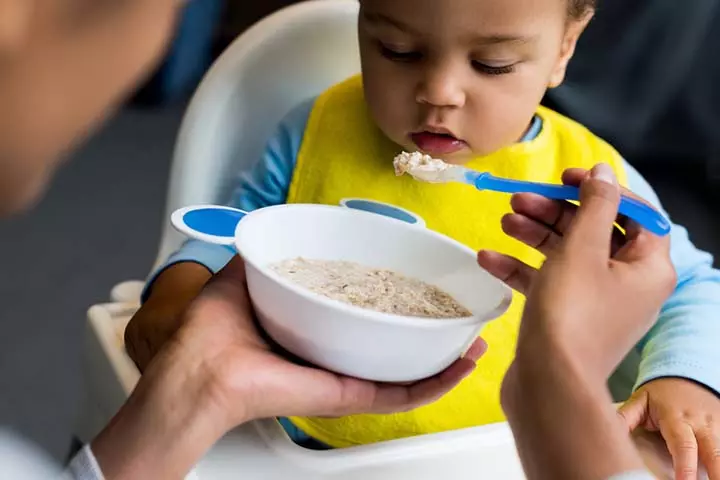
Porridge will make a highly nutritious breakfast for your baby. It is an excellent source of nutrients like carbohydrates, proteins, and dietary fiber. Moreover, it will keep their little tummy full for a couple of hours and keep crankiness at bay. Consider preparing porridge with various grains like oats, wheat, or rice. Add to the nutrient value by incorporating mashed fruits such as bananas or apples or a dollop of yogurt.
How Much Food Should I Feed My 16-Month-Old Baby?
The following table explains the average daily intake requirement for a toddler (1).
| Food group | Servings per day | One serving equals |
|---|---|---|
| Grains | 6 | Bread (¼ to ½ slice), cooked rice or pasta (4 tablespoons), dry cereals (¼ cup), crackers (1 or 2) |
| Vegetables | 2 to 3 | Cooked veggies (1 tablespoon for each year of age) |
| Fruits | 2 to 3 | Cooked fruit (¼ cup), fresh fruit (½ piece) and fresh juice (¼ to ½ cup) |
| Dairy | 2 to 3 | Milk (½ cup), cheese (1-inch cube), yogurt(½ cup) |
| Protein (tofu, egg, fish, meat, poultry) | 2 | 1 oz of meat and ½ egg (yolk and white) |
| Legumes | 2 | Soaked and cooked (⅛ cup) |
Simple Recipes For Your 16 Months Baby
Now that you have an idea of all the different kinds of foods you can include in the diet of your 16 month old baby, below are a few simple recipes that are nutritious and easy to make.
- Mashed sweet potatoes: Sweet potatoes are a powerhouse of nutrients. To make mashed sweet potatoes, simply peel and cut potatoes in chunks and boil them for around 15-20 minutes. Using a masher or hand blender, blend the sweet potatoes, add some butter and seasonings and serve warm.
- Pumpkin puree: A pumpkin puree would be a simple and wholesome recipe for your baby. Take a fresh pumpkin, peel it and chop into chunks. Boil the pumpkin chunks until they are tender and then add it to the blender and blend it into a smooth consistency. You can also add a pinch of seasoning and serve.
- Steamed broccoli florets: To make this, just cut broccoli into small florets, and steam it for around six minutes. Take the florets in a bowl, drizzle some olive oil or butter with some seasonings to turn it into one of the most delicious side dishes or finger foods for toddlers.
- Vegetable pancakes: Grate carrots and zucchini, and combine them with flour, egg, and a pinch of salt. Cook the mixture in a skillet until golden brown. These pancakes are a fun way for toddlers to enjoy vegetables and can be served with yogurt as dipping.
Dealing With Picky Eaters
Managing picky eaters can be challenging. Here are some tips to manage them and ensure they get essential nutrients.
- Offer variety: Provide a range of foods to expose them to different flavors and textures.
- Make it fun: Present meals in fun shapes or bright colors to make them more appealing.
- Be consistent: Offer new foods regularly without pressure, and encourage exploration.
- Practice patience: Understand that developing a taste for new foods takes time.
Frequently Asked Questions
1. How do I get my 16-month-old to eat?
Make mealtimes healthy; involve your toddler in meal preparation; avoid punishing them if they refuse to eat; do not bribe them with treats for healthy food; serve them variety; feed them family food; let them explore the food on the plate with their hands; and follow their lead to help your child eat more (13).
3. What foods should toddlers not eat?
Avoid giving slippery foods such as candy, cough drops, grapes, and large pieces of meat, small and hard foods, such as seeds, nuts, popcorn, raisins, raw carrots, and other sticky foods such as marshmallows and peanut butter to your toddlers. While some foods may cause choking hazards, others might trigger food allergies (14).
3. How much milk should my 16-month-old drink?
Your toddler should get about 16 to 24 ounces of full-fat milk daily (15).
4. Why is my 16-month-old not eating?
Toddlers often refuse to eat certain foods for a specific time, as they may experience appetite changes, or dislike food they used to like; so, if your toddler is healthy and active, you probably need not worry about their eating habits (13).
5. How can I get my 16-month-old to gain weight?
Serving small, frequent, and varied meals, that include healthy fats and essential nutrients, help facilitate healthy weight gain in toddlers (5). Nevertheless, if your toddler is not gaining enough weight or you suspect any growth delays, it is suggested to speak to a pediatrician.
These energy and nutrient-rich foods for a 16-month-baby could help you add different flavors, vitamins, and minerals to your baby’s diet. Incorporate various grains, dairy products, eggs, fruits, and vegetables into your baby’s meals for a balanced diet. Try giving them whole grains or boiled eggs for breakfast or snack time, or make a wholesome meal with various veggies for lunch and dinner. You may try customizing a few healthy recipes as per your toddler’s age and taste preferences. However, it is wise to seek a pediatrician’s advice before adding a new food variety to your tot’s diet.
Infographic: Essential Nutrient-Based Food Groups For A 16-Month-Old
Do you have a child who has just begun table foods and prefers certain flavors and food textures? If yes, check out the infographic below on food groups that you can include in your 16-month-old’s diet to meet their nutritional needs.
Some thing wrong with infographic shortcode. please verify shortcode syntaxIllustration: Top 10 Ideas For 16 Months Baby Food
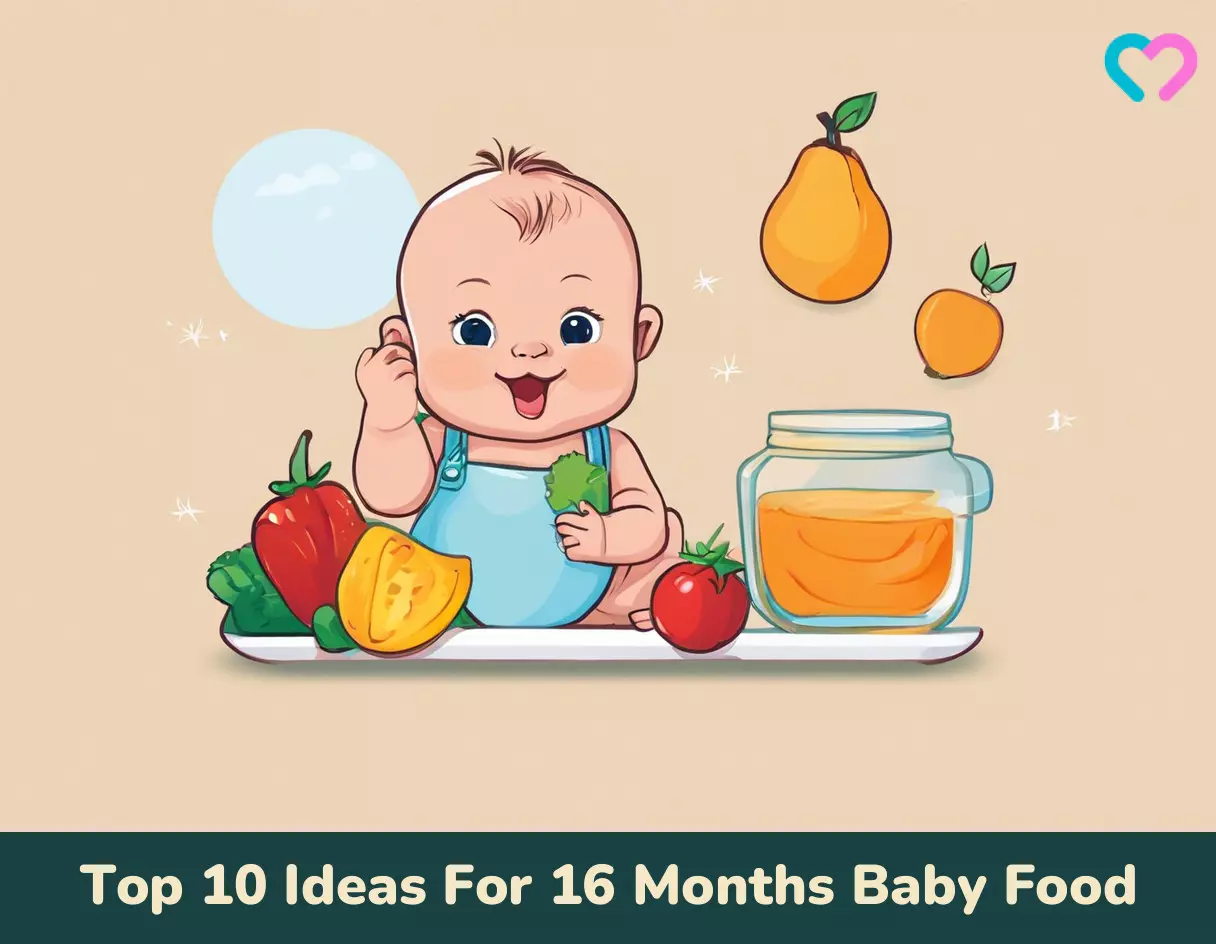
Image: Stable Diffusion/MomJunction Design Team
Personal Experience: Source
MomJunction articles include first-hand experiences to provide you with better insights through real-life narratives. Here are the sources of personal accounts referenced in this article.
i. What my 16 months old baby eats in a day | easy & healthy toddler meal ideas.https://www.youtube.com/watch?v=NYqZ1NOfffA&feature=youtu.be
References
- Serving Sizes for Toddlers.
https://www.healthychildren.org/English/ages-stages/toddler/nutrition/Pages/serving-sizes-for-toddlers.aspx - Drinks and cups for babies and young children.
https://www.nhs.uk/conditions/baby/weaning-and-feeding/drinks-and-cups-for-babies-and-young-children/ - Feeding Your 1- to 2-Year-Old.
https://kidshealth.org/en/parents/feed12yr.html - Food portion sizes for children age 1 to 4.
https://www2.hse.ie/babies-children/weaning-eating/nutrition-child/portion-size/ - A Dietitian’s Best Advice If Your Child Is Underweight.
https://health.clevelandclinic.org/dietitians-best-advice-child-underweight - Iron.
https://ods.od.nih.gov/factsheets/Iron-HealthProfessional/ - Dietary guidelines in pictures: children 1-2 years.
https://raisingchildren.net.au/toddlers/nutrition-fitness/daily-food-guides/dietary-guide-1-2-years - Healthy food trends – beans and legumes.
https://medlineplus.gov/ency/patientinstructions/000726.htm#:~:text=Beans%20and%20legumes%20are%20richlevels%20and%20no%20saturated%20fats. - What to Feed Toddlers 12-24 Months.
https://healthyeatingresearch.org/wp-content/uploads/2025/08/What-to-feed-12-24-month-olds.pdf - Egg consumption recommendation/intervention for children under five.
https://www.en-net.org/forum/question/4929 - How much protein does my child need?
https://health.choc.org/how-much-protein-does-my-child-need/ - Questions & Answers from the FDA/EPA Advice about Eating Fish for Those Who Might Become or Are Pregnant or Breastfeeding and Children Ages 1 to 11 Years.
https://www.fda.gov/food/consumers/questions-answers-fdaepa-advice-about-eating-fish-those-who-might-become-or-are-pregnant-or#:~:text=Fish%20have%20important%20nutrients%20thattilapia%2C%20trout%2C%20and%20whiting. - Toddler not eating? Ideas and tips.
https://raisingchildren.net.au/toddlers/nutrition-fitness/common-concerns/toddler-not-eating - Baby-Led Weaning: What You Need To Know.
https://health.clevelandclinic.org/baby-led-weaning - Feeding Your Baby and Toddler (Birth to Age Two).
https://www.mottchildren.org/posts/your-child/feeding-your-baby-toddler#:~:text=Your%20toddler%20should%20get%2016enough%20nutrients%20from%20other%20foods.
Community Experiences
Join the conversation and become a part of our nurturing community! Share your stories, experiences, and insights to connect with fellow parents.
Read full bio of Dr. Misha Yajnik
Read full bio of Jessica Albert
Read full bio of Swati Patwal
Read full bio of Vidya Tadapatri







